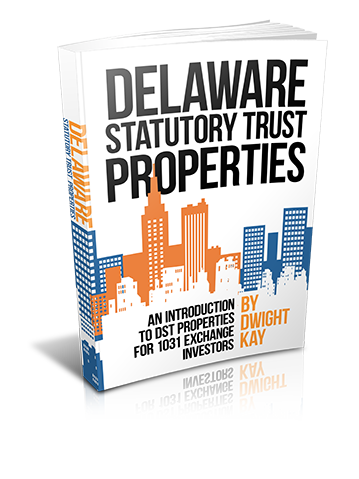How To Dodge A Tax Hit When Selling Rental Property By Making The Right Move, Sellers Can Sidestep The Capital Gains Tax
By: Dwight Kay

There are plumbing issues that eat into time and money. There are tenants who fail to pay the rent. There are broken leases and leaky roofs.And the hassles don’t even end when the beleaguered landlord finally decides to sell the property. After the deal closes, the Internal Revenue Service is waiting in the wings to collect a capital gains tax on the profits from the sale.
“Depending on your situation that can definitely end up being a significant hit when tax time arrives,” says Dwight Kay, founder and CEO of Kay Properties and Investments (www.kpi1031.com).
But Kay says with the right planning those landlords – and anyone who sells commercial property – can sidestep paying the capital gains tax.
Here’s how: When they sell their property, they can invest the proceeds in what is referred to as “like-kind” property using Section 1031 of the Internal Revenue Code. Essentially, they are exchanging one piece of commercial property for another, but hopefully one that better meets their needs, Kay says.
“A landlord who decides he’s tired of all the work he has to put in on his rental property could use the exchange to get an income-producing property where someone else is dealing with all the problems,” he says.
All types of commercial properties can be considered “like-kind,” including apartment buildings, vacant land, farmland, office buildings and warehouses among other properties.
One drawback is that the seller has just 45 days to identify what property they are going to exchange into. It’s not always easy to find 1031 exchanges quickly, but there’s also a solution to that, Kay says.
If the seller qualifies as an accredited investor, which is generally defined as an investor with a net worth of greater than $1 million dollars excluding their primary residence, the seller can potentially invest in Delaware Statutory Trust properties. A Delaware Statutory Trust (DST) is a trust that lets investors buy an interest in commercial property, but managing the property is left to professional asset managers. Because Delaware Statutory Trust properties are pre-packaged for 1031 exchange investors, they provide a viable solution for those concerned about meeting that 45-day deadline.
Also, despite the name, the property doesn’t have to be in Delaware. Kay, for example, says his Los Angeles and New York City-based company works with clients and properties in all 50 states. Kay goes on to say, “A Delaware Statutory Trust property could be a property that has a long term lease with Costco or Walgreens or it could be a 200 unit apartment community built in 2014 and located in Denver, Colorado. Investors are able to invest as little as $100,000 into each DST thereby creating a diversified portfolio for there 1031 exchange.”
Kay says there a several potential benefits for investors. Here are just a few:
Eliminating the day-to-day headaches of property management. The Delaware Statutory Trust 1031 property provides a passive ownership structure, allowing the investor to enjoy retirement, grandkids, travel and leisure, as well as to focus on other things that they are more passionate about instead of property management.
Dwight Kay
CEO and Founder
Dwight Kay is the Founder and CEO of Kay Properties and Investments, LLC (Kay Properties). Kay Properties is a provider of DST brokerage and advisory services headquartered in Los Angeles, CA with an office in New York, NY. Registered Representatives at Kay Properties and Investments specialize in helping 1031 exchange clients throughout the country purchase DST properties and are securities licensed in all 50 states, Washington D.C. and the U.S. Virgin Islands. Mr. Kay has personally been involved in over $200,000,000 of client purchases of DST properties and other securitized real estate products.
 Dwight is a published author with multiple published white papers and articles on 1031 exchanges, Delaware Statutory Trust (DST) properties and real estate securities. He has been interviewed on local and nationally syndicated radio stations on the matters of 1031 exchanges and replacement properties. He also is the author of the published book “Delaware Statutory Trust (DST) Properties: An Introduction to DST Properties for 1031 Exchange Investors.”
Dwight is a published author with multiple published white papers and articles on 1031 exchanges, Delaware Statutory Trust (DST) properties and real estate securities. He has been interviewed on local and nationally syndicated radio stations on the matters of 1031 exchanges and replacement properties. He also is the author of the published book “Delaware Statutory Trust (DST) Properties: An Introduction to DST Properties for 1031 Exchange Investors.”
Dwight began his career in commercial real estate working for a national commercial real estate brokerage firm focusing on multifamily and commercial real estate. Mr. Kay received his Bachelors in Business Administration from Point Loma Nazarene University in San Diego, California, and successfully obtained his Series 7, 22, and 63 securities licenses as well as a real estate broker’s license.
Tags: Capital Gains Tax, Dwight Kay, Taxes




